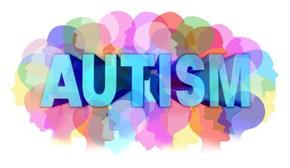
Autism an Ability or a Disability – It all depends on society and the calibre of support on offer
By Dr Hein Scheffer
As April was Autism Acceptance Month, I spoke with a friend and former colleague of mine, who is the proud father of two boys. The eldest is an exceptionally talented Autistic boy called Declan. In his early years, his parents were not equipped in how to handle their son, and had to learn how to support, help and understand Declan. Living in Kenya, there were no social care facilities available, as we have in the UK. So, Declan’s parents had to work hard to teach themselves about Declan’s condition and how they could best support him. When they came to visit us at the end of 2022, it was evident that their commitment and devotion to both their boys had unlocked the potential, capacity, and capabilities of their boys and that both will have a great future.
Considering that we have a number of employees within the EEAST who have self-declared that they are on the autistic spectrum, I wondered what we can do to support our colleagues.
It is evident that in today’s business world, and I believe the NHS will be no exception, there remains a major gap in recruiting, retaining and harnessing the brilliance of people with hidden disabilities like Autism Spectrum Disorders (ASD). In fact, I wondered whether we should even be referring to ASD as a disability or disorder? ASD can be a huge ability, if appropriately supported. Is it possible that we call it a ‘disability’ because we do not understand how to maximise its many great qualities?
From the social model of disability, developed by disabled people, we learn the view that it may not so much be the medical condition that creates the disability, but that people are disabled by barriers in society.[1] These barriers can be environmental, organisational, attitudinal or through communication.
So, how do we support our current and future people, to enable them to make a constructive contribution to EEAST? How can we bridge this gap through education, mentoring and support to others, to better understand ASD and the benefit these potential colleagues could bring to the workplace?
Talking to Declan, it was clear that, many people with ASD have extraordinary abilities. They have a hunger for knowledge in certain subjects and disciplines. They have a remarkable attention to detail and a logical rationale that brings focus and process to their thinking, which is seldom clouded by emotions. Playing something like ‘fun with flags[2]’ with Declan it was insightful how he retained the detail of all 193 countries across the world. People with ASD have a remarkable ability to retain detail, enjoy routine, and can do specific routine tasks with absolute precision. If appropriately supported, these talents could be hugely beneficial, and enable them to make a positive contribution to organisational needs. The UK story of Harry Specters’ Chocolate factory is an example in point[3].
As employers, we have been unable to effectively tap into this level of expertise due to stereotyping in the workplace, and through ignorance in society in general. The National Autistic Society confirmed that only 22% of adults with ASD are in any kind of employment, whilst just about 50% of people with disabilities in the UK are employed[4]. This adversely impacts our working environments, recruitment processes and talent management programmes. Generally, we have left those with ASD, who represents a fantastic resource and ability to contribute, out of the workplace, or largely marginalised, very possibly due to ignorance and a lack of understanding of what people with ASD could offer.
According to James Mahoney, Head of Autism at Work for JPMorgan Chase, “employees on the autism spectrum were as much as 140 percent more productive than their peers”, if they are appropriately matched to the right role. We find ourselves in this situation mainly because the majority of our workplaces are established to suit neurotypicality and focus less on neurodivergent individuals[5].
According to the website Exceptional Individuals, people on the autistic spectrum often have great ‘attention to detail’, demonstrate high levels of ‘efficiency’, using their ‘logical thinking’ to problem solve whilst their ability for ‘retention’ enables them to ‘build encyclopaedic knowledge on topics of interests’[6].
Reflecting on the above, I think we should do more to embrace people with ASD, people with both visible and non-visible disabilities. It is our responsibility to educate ourselves on how to utilise these talents, resources, capacity and capabilities. We need to ensure that people like Declan can be his full self in a warm and welcoming working environment, as envisaged by James Mahoney at JPMorgan Chase. With only 22% people with ASD employed and around 50% of all people with any form of disability not gainfully employed, there is much more we could and should do. Our collective challenge remains, how do we embrace people with disabilities, both visible and non-visible, as part of our workforce?
Perhaps by all of us thinking differently we can open dialogue with our ASD colleagues to decode information for knowledge and skills, then overcome any challenges, any barriers and unlock the potential and capabilities for individuals in our workplace, showing greater acceptance, more support, and a higher level of understanding. If you have any questions or wish to talk to someone then please contact Esther Shawe Chair of our Disability Support Network.
[1] https://www.scope.org.uk/about-us/social-model-of-disability/
[2] The Big Bang Theory - Wikipedia
[3] https://www.harryschocs.co.uk/pages/our-story
[4] https://www.autism.org.uk
[5] https://resources.vercida.com/jpmorgan-autism-at-work
[6] https://exceptionalindividuals.com
Published 26th April 2023